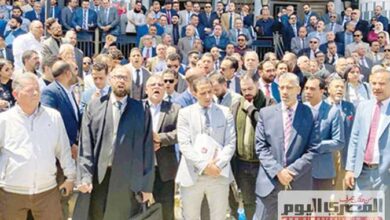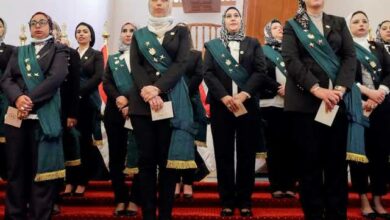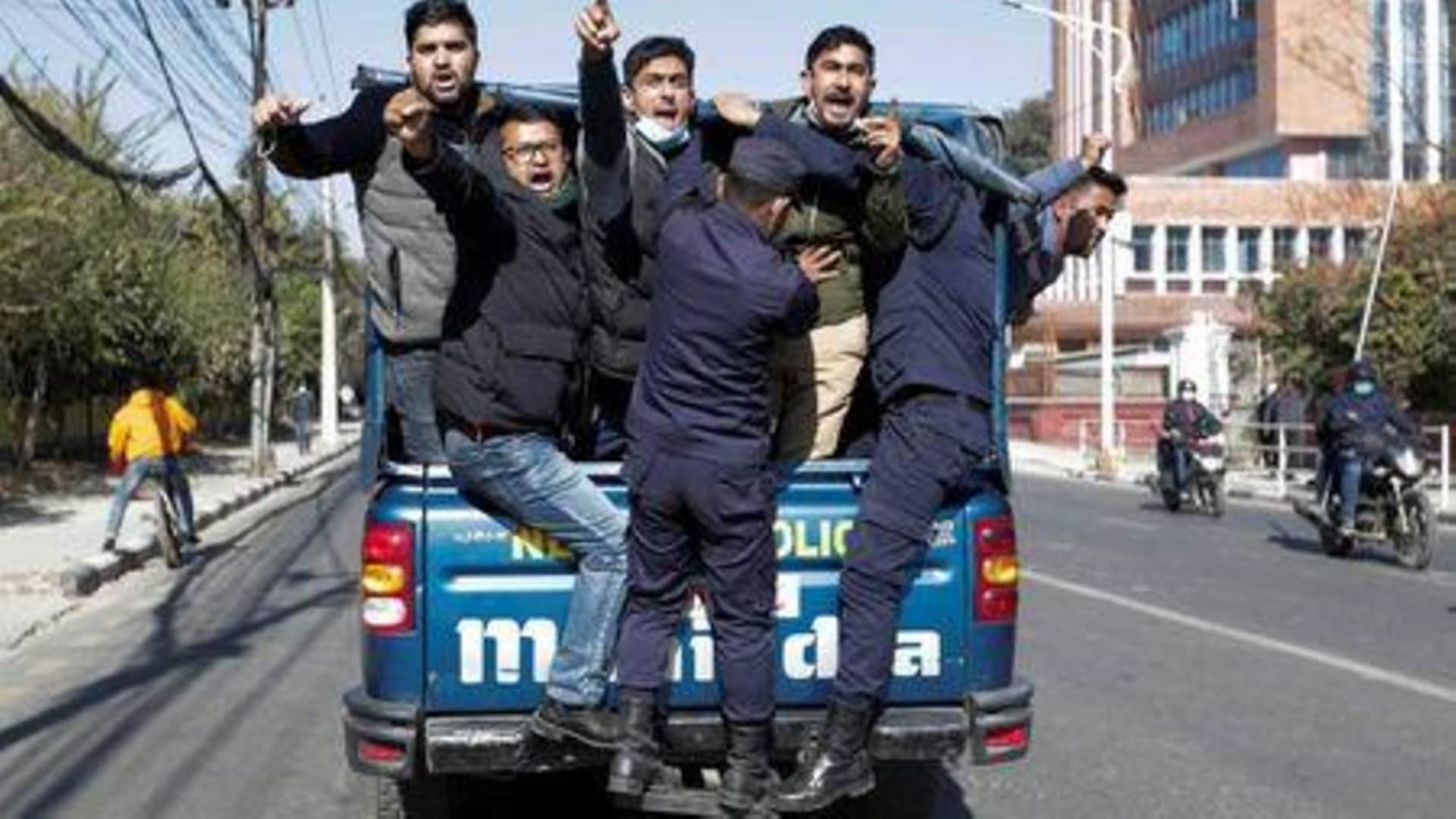The ongoing feuds between lawyers and judges are still making headlines in most newspapers. Privately-owned Al-Dostour leads with: “The uproar of judges and lawyers persists.” The paper reports that judges accuse lawyers of shooting at them as they came out of the Cairo High Court building and have asked the public prosecutor to bring the aggressors to justice.
State owned Al-Gomhurriya reports that Public Prosecutor Abdel Meguid Mahmoud has already begun investigating the complaints filed by judges over the last two weeks – they accuse lawyers of insulting them, beating them up and preventing them from doing their jobs. Tensions erupted between lawyers and judges over the content of two judge-produced drafts of amendments to Judicial Authority Law 142/2006. The drafts include a clause that gives judges the ability to detain anyone who disturbs court proceedings, including lawyers. The judges have insisted that they will not remove the controversial clause, according to Al-Gomhurriya.
The results of a forensic report on the alleged killing by torture of a prisoner last week is also highlighted in most privately-owned and state-owned papers. The papers stress that the provisional examination proves that Essam Ali Atta was not tortured. Privately owned Al-Shorouk quotes Soad Abdel Ghaffar, the head of the autopsy unit where Atta’s body was examined, as saying that she found strange foreign objects in his stomach which were most probably drugs.
The paper quotes Atta’s brother as dismissing the forensic report and saying that his brother never consumed drugs. Atta died on Thursday evening at the poison unit of the Qasr al-Aini Hospital. His family told reporters that he had called them while in jail to say he was being tortured by prison guards. In addition, his prisonmates told human rights activists that prison guards had shoved water hoses into his mouth and anus, causing serious bleeding and eventually death.
Bilal Fadl writes a sarcastic column in Al-Tahrir daily drawing the obvious parallels between Atta’s story and that of Khaled Saeed, whose killing by two policemen in June 2010 is believed to have been one of the sparks behind the 25 January revolution. Back then Mubarak’s regime had denied the 26-year-old was beaten to death, claiming that he died after having swallowed a packet of narcotics.
Fadl’s column speaks in the voice of “the packet of drugs” that Saeed was forced to swallow, intimating that Atta also might have been forced to do the same so that the police could easily rebuff accusations of having tortured him. “I am the packet [of drugs]; I am the magical solution; I am the reason; I am the pretext; I am the tool of unjust people to save themselves. I am wondering when you will swallow me,” he writes.
Nothing has changed, Fadl concludes, meaning that the police still torture people and use the same pretext for violence.
Al-Shorouk quotes the head of the High Elections Commission (HEC) as saying that even if Egyptian expatriates are not allowed to vote in the parliamentary poll, the poll will not be considered invalid. Since Egypt’s Supreme Administrative Court ruled that Egyptians living abroad should be allowed vote in the upcoming elections, many legal experts have argued that if the HEC does not abide by this ruling, the whole poll and the new parliament will be considered void.
Judge Abdel Moez Ibrahim explained in the story the legal hurdles preventing Egyptians living abroad from voting in the upcoming elections. Under the current Constitutional Declaration, Egyptians abroad cannot vote unless their voting is monitored by judges, he told Al-Shorouk. Pointing out the difficulty of dispatching judges to every Egyptian embassy in the world, Ibrahim suggested that the military change the Constitutional Declaration to allow diplomats rather than judges to monitor voting abroad. The paper also quotes Ibrahim as saying that if the Muslim Brotherhood’s Freedom and Justice Party (FJP) insists on using the slogan “Islam is the Solution,” the HEC will request the Supreme Constitutional Court cancel the candidacies of the party’s members.
State-run Al-Akhbar reports that the HEC will announce the final list of parliamentary candidate names on Tuesday. Yesterday the commission stopped receiving appeals challenging candidacies, and its judges are expected to examine all appeals today and tomorrow, says Al-Akhbar. A lawyer has filed an appeal before an administrative court demanding that all candidates of the FJP be denied the right to run for parliament, arguing that the FJP stems from the Muslim Brotherhood which the lawyer regards as an illegal entity, according to Al-Akhbar.
The same paper runs a reaction story to a statement made by a Salafi sheikh in the Delta province of Beheira, who argued that a Muslim should not vote for a secular, Christian or liberal candidate. The paper quotes several Al-Azhar clerics dismissing this fatwa. One of them argued that voting is not a religious but a worldly duty. Hence there is nothing wrong with a Muslim casting his or her ballot for a secular, liberal or Christian candidate if he or she thinks that this particular candidate will benefit the country more.
Egypt's papers:
Al-Ahram: Daily, state-run, largest distribution in Egypt
Al-Akhbar: Daily, state-run, second to Al-Ahram in institutional size
Al-Gomhurriya: Daily, state-run
Rose al-Youssef: Daily, state-run
Al-Dostour: Daily, privately owned
Al-Shorouk: Daily, privately owned
Al-Wafd: Daily, published by the liberal Wafd Party
Youm7: Daily, privately owned
Al-Tahrir: Daily, privately owned
Sawt al-Umma: Weekly, privately owned
Al-Arabi: Weekly, published by the Nasserist Party




